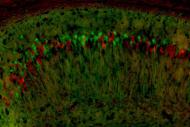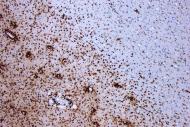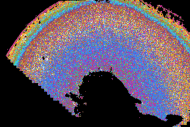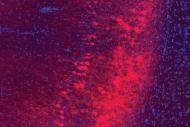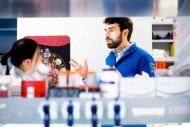UCSF researchers discovered that when brain cells rely only on the X chromosome a female has inherited from her mom – instead of from her dad – they age more quickly. Researchers found that female mice using only maternal X chromosomes showed faster cognitive decline, which could help explain the variation in brain aging between the sexes.
Poverty, stress, limited access to healthy foods and certain medical conditions up the ante – especially in women. For this neurologist, it’s personal. In a Q&A, neurologist Lauren Patrick describes stroke risks and mitigation, along with personal exercise and diet changes she’s made to help prevent lower her own risk of stroke.
UCSF study calls attention to the potential for estrogen therapy in slowing the course of the disease. A new study found that menopause can speed up the progression of multiple sclerosis (MS), affecting mobility and cognitive ability.
A transformative $5 million gift from Jean-Pierre Conte to UCSF to established two endowed professorships in the Department of Neurology that will support research and activities related to Parkinson’s disease.
The discovery of a new type of stem cell in the brain could usher in better treatments for the deadliest brain tumor. A new study paints one of the most detailed pictures of human brain development to date, opening the door to new tests and therapies, including for brain disorders such as autism.
A digital twin of a human mind? It isn’t science fiction. A digital twin of a human mind? It isn’t science fiction.
Insights from human evolution could change how we understand and treat illness. Insights from human evolution could change how we understand and treat illness.
Researchers at UCSF find a brain signature of resilience in mice that suggests a new way of treating severe depression. UCSF scientists are uncovering the brain mechanisms behind resilience to stress and exploring new, non-invasive treatments for depression through groundbreaking research in mice.
Nearly 50 UCSF researchers have been named to Clarivate’s list of most influential scientists for 2024.
Researchers at UCSF, UCSC and UC Berkeley use pulses of light to switch neurons off and curb abnormal neural activity. A technique involving the use of light pulses to prevent seizure-like activity in neurons could one day become a new, non-invasive treatment for epilepsy.

